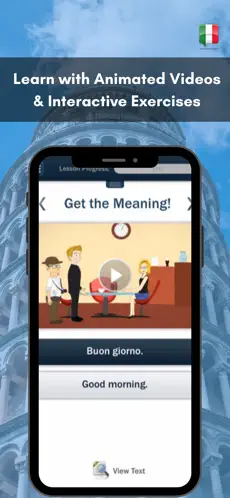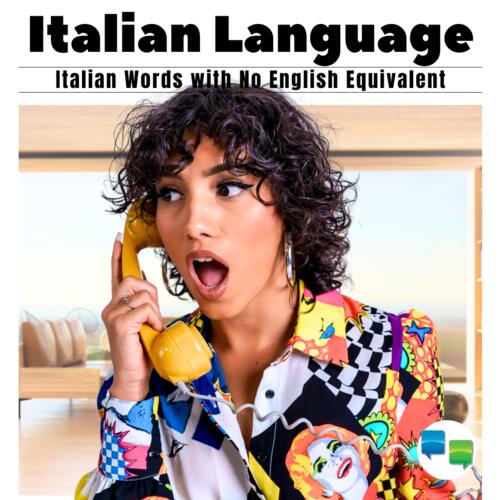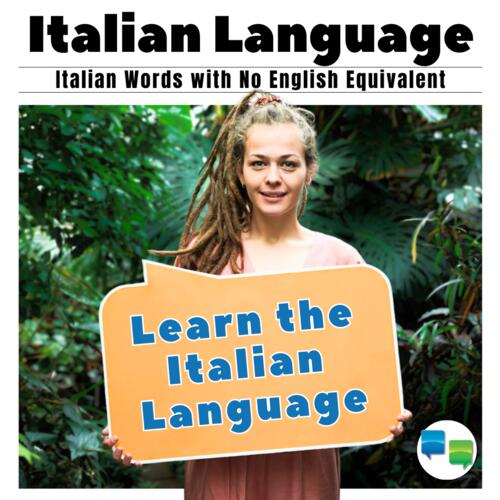The Italian language is known for its richness, expressiveness, and poetic charm. Like many languages, Italian contains words that have no direct translation into English, offering insights into the culture and values of Italy. These words often capture emotions, situations, or concepts that require entire sentences to explain in English. Here are ten beautiful Italian words with no true English equivalent as explained by a leading Italian language learning app developer for iOS and Android devices Hello-Hello in this blog.
- Sprezzatura – This word describes effortless elegance or nonchalant charm. Sprezzatura refers to the art of making something difficult look easy, often associated with Italian style and grace. It’s a concept rooted in cultural pride and understated sophistication.
- Culaccino – Culaccino is the mark left on a surface by a cold glass. While English may describe this phenomenon in a roundabout way, the Italian term captures it in a single, melodic word.
- Abbiocco – That drowsy feeling you get after eating a large meal? The Italians call it abbiocco. This word is particularly relatable after a hearty Italian feast, where the abundance of pasta and wine often leads to a delightful food coma.
- Gattara – A gattara is a woman, often older, who cares for stray cats. This term is endearing and culturally significant, as it reflects Italy’s appreciation for cats and the kindness of individuals who look after them.
- Dolce far niente – Translating to “the sweetness of doing nothing,” this phrase captures the Italian philosophy of enjoying life’s simple moments without stress or urgency. It’s not laziness but rather a mindful appreciation of leisure.
- Magari – Magari is a versatile word used to express hope, wishfulness, or possibility. Depending on context, it can mean “if only,” “perhaps,” or “I wish.” Its emotional depth is difficult to encapsulate in a single English word.
- Passeggiata – The passeggiata is a leisurely stroll taken in the evening, often in town squares or along scenic routes. More than a walk, it’s a social ritual, a way for Italians to unwind, connect, and enjoy life’s beauty.
- Pantofolaio – A pantofolaio is someone who prefers staying at home in slippers rather than going out. While the concept exists in English, no single word encapsulates this cozy, introverted lifestyle as succinctly.
- Mozzafiato – Literally translating to “breath-taking,” mozzafiato conveys a profound sense of awe or wonder. While “breath-taking” exists in English, mozzafiato carries a more poetic, emotional intensity, often used for beautiful scenery or art.
- Struggimento – Struggimento is a deep, bittersweet yearning or emotional ache, often associated with unfulfilled desires or nostalgia. It’s a feeling that blends pain and beauty, perfectly capturing the emotional depth of Italian culture. These unique Italian words highlight the beauty of a language that reflects a culture rich in emotion, tradition, and appreciation for life’s finer details. Learning these words not only expands your vocabulary but also gives you a glimpse into the Italian way of thinking and living. Whether it’s through a passeggiata or embracing dolce far niente, Italian words invite us to savor life’s moments in ways English often cannot express.

Learn Italian (Hello-Hello)
Learn Italian Phrases, Words, and Conversations with the top-selling language-learning app! Learning Methodology Based on Animation, Cartoon Scripts, Word Games, and more. Learn to communicate effectively from LESSON 1! Hello-Hello offers 30 conversational lessons based on real-life situations rather than a collection of out-of-context words and phrases. Dialogues are presented and then broken down into sentence by sentence where you can practice pronunciation and writing skills
The research-based methodology was developed in collaboration with the most prestigious institution for language teachers and professionals: The American Council on the Teaching of Foreign Languages – ACTFL


